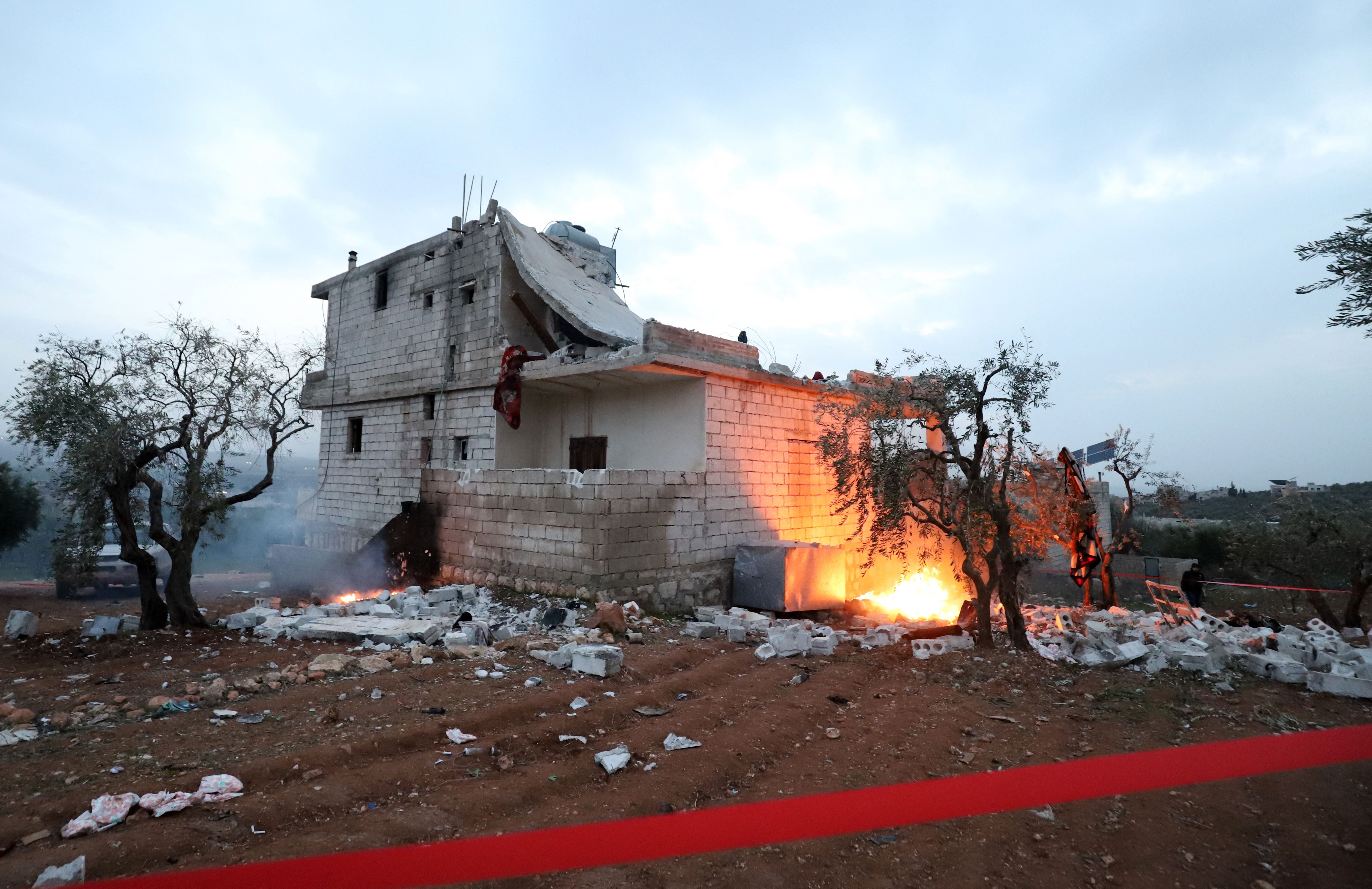Another Isis chief is dead – but there is still no long-term US plan
An unbalanced approach to combating Isis – one that focuses on bombastic raids to take out high-profile leaders in a vacuum – is not going to work, writes Bel Trew


In many ways, the US raid which killed Isis’s chief on Thursday was like experiencing déjà vu. Like his predecessor in 2019, Isis caliph Abu Ibrahim al-Hashimi al-Qurashi was killed in Idlib province, an opposition-held pocket of northwest Syria.
Al-Qurashi too was holed up with his family in a house along the Turkish border. In fact, it was just 15 kilometres up the road from the last hiding spot of Abu Bakr al-Baghdadi. Like al-Baghdadi, he too blew himself up to evade capture.
The news came out in jagged disclosures before President Joe Biden also declared victory, albeit in a less bombastic manner than his predecessor Donald Trump who infamously claimed Baghdadi “died like a dog… whimpering, screaming and crying”.
But while putting together a picture of what happened on the ground, my immediate thought was, when will we be back here again with another special forces raid on the next leader of Isis? And can this really be an effective way to combat the global terror group, when so many other major mistakes are being made?
To be clear, there is no doubt that the killing of al-Qurashi is a blow to Isis, which has had to steadily rebuild itself in an entirely different form since its 2019 territorial defeat by US-led coalition forces.
Al-Qurashi had been caliph for less than three years and, likely due to security concerns, had not made a single public video or audio address to Isis’s rank and file. That is a big shift from that chilling video of Baghdadi, proclaiming a caliphate from a Mosul mosque. The man was comparatively unknown at his coronation and comparatively unknown at this death.
Studies prove that “decapitations” of the upper echelon of Isis do hurt morale, says Elizabeth Tsurkov, a Syria expert and non-resident fellow at the New Lines Institute. “It creates paranoia within the leadership that they are infiltrated. It makes higher command and control harder. They can’t even use electronics,” she continues. “It got to the point where this guy was killed before he even managed to produce any media output. He was caliph for such a brief period.”
But, Tsurkov said, without a comprehensive shift in the way the world approaches the problem of Isis, the group will continue to recruit, to prey on desperate men in Syria, Iraq and abroad, to stage attacks and slowly gain ground. It may not be the Isis of 2014 that, at breakneck speed, swept control of thousands of kilometres of territory, but it is absolutely not defeated and still deadly.
That was hammered home just weeks before the killing of al-Qurashi, when Isis militants staged a mass prison break in neighbouring northeast Syria, which is controlled by the US’s main allies in Syria, the Kurdish-led Syrian Democratic Forces (SDF). Hundreds rioted inside Gweiran, which is one of the largest facilities holding militants of its kind, while hundreds attacked from the outside. Militants held 700 child detainees hostage, including an American and an Australian. The battle raged for 10 days.
In the end, more than 380 suspected militants and 120 members of the Kurdish-led security forces and prison guards were killed before the SDF restored full control. How Isis were able to stage something so spectacular is still being investigated, but the Kurdish-led forces have consistently warned of the growing number of Isis sleeper cells in the area and have specifically said that the sprawling prison, home to more than 3,000 people (including British nationals), was a target.
In fact, they have long warned that they do not have the resources to watch over all the 10,000 suspected Isis fighters currently being held in around two dozen of their detention facilities – including 2,000 foreigners whose home countries have refused to repatriate them. They have repeatedly spoken of struggling to secure tens of thousands of foreign and Syrian family members of Isis figures in the nearby detention camps of al-Hol and Roj.
Despite these warnings, countries have still not repatriated their citizens, and in the case of the UK we have instead stripped many of those in detention of their British citizenship, effectively abandoning them to rot in this unstable slice of a war-ravaged country.
There doesn’t seem to be a comprehensive, holistic or long-term plan to truly combat Isis in Syria and neighbouring Iraq, where, at the same time as the Gweiran prison break erupted, Isis fighters slaughtered 11 members of the Iraqi security services as they slept.
To keep up to speed with all the latest opinions and comment, sign up to our free weekly Voices Dispatches newsletter by clicking here
Instead, as Tsurkov points out, there are many desperate men in both countries who have not been effectively reintegrated into society and are therefore easy targets for recruitment or re-recruitment. A generation of child detainees held in miserable detention facilities like al-Hol and Gweiran are, meanwhile, being raised in what are effectively “jihadi indoctrination camps”.
Isis effectively terrorises the population of many areas where they have presence. Civilians are made to pay taxes to the group in protection money and bribes, and families are afraid of leaving their house after dark.
For Isis to effectively control and rebuild from these patches of territory, they don’t even need something as sophisticated and spectacular as the Gweiran prison break. Maybe they do not even need a particularly important public leader to rally the troops.
That is why an unbalanced approach to combating Isis – one that focuses on bombastic raids to take out high-profile leaders in a vacuum – is not going to work. We will only find ourselves right back here again.






Join our commenting forum
Join thought-provoking conversations, follow other Independent readers and see their replies
5Comments